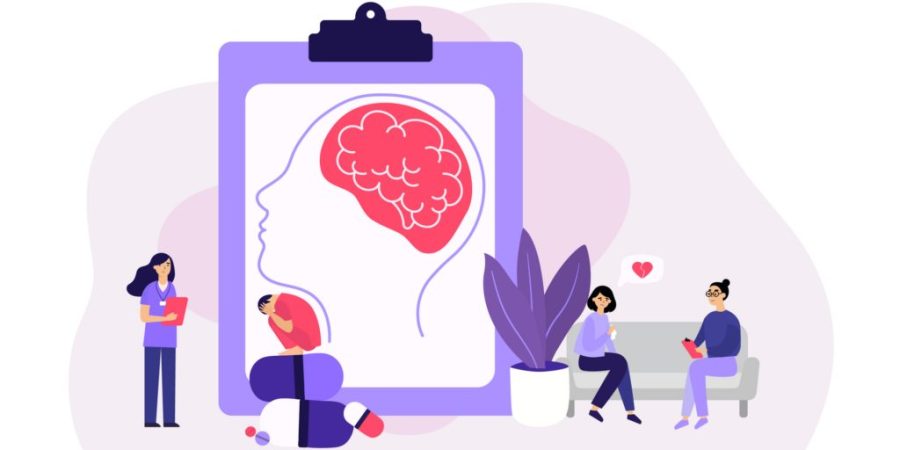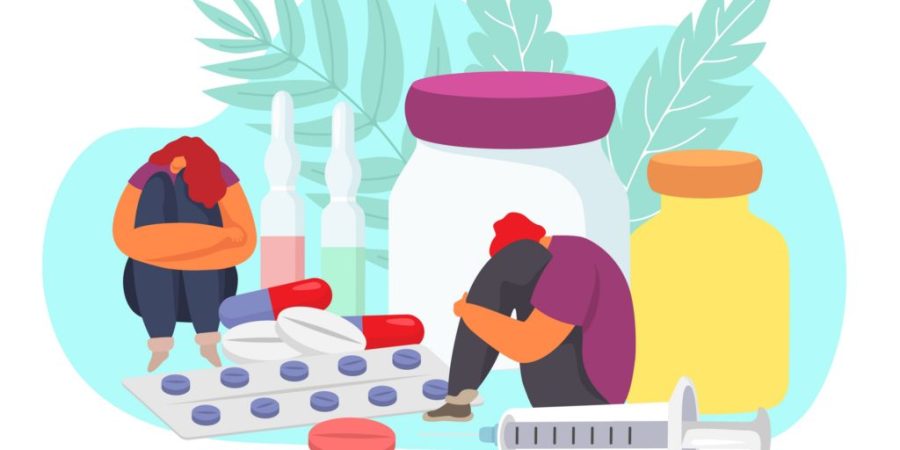
It’s common knowledge that there can be noticeable effects of long-term addiction. For years, organizations like the National Institute on Drug Abuse have advised the public that drugs and alcohol can increase the risk of developing various physical and mental ailments, particularly when abused over a long period of time. But what, specifically, are the mental and physical effects of long-term addiction? And if you’re living with a substance abuse issue, what can you do to quit?
To help you keep yourself and your loved ones safe, we’ll be answering these and other questions about chronic substance abuse. Keep reading to learn about the side effects of long-term addiction and what you can do to avoid or address these issues.
Side Effects of Long-Term Addiction
There are many factors that determine what side effects of long-term addiction can develop in an individual. These include:
- Social factors like whether or not the people in your life encourage substance abuse
- The types of substance(s) taken
- Whether or not you engage in binging drugs or alcohol
- The presence of any pre-existing mental health conditions
Given how many different factors are at play, there is no one complete list of all the side effects of long-term addiction. Instead, it can be helpful to consider these issue through three lenses: physical, mental, and social.
Physical Issues Caused by Addiction
As mentioned above, the long-term effects of drug and alcohol abuse can depend on which substance(s) you’ve been taking. And in many cases, taking multiple substances over a long period of time can be especially dangerous. For example, in one study the more drugs that an individual used, the higher their risk for heart disease became.
And this is not the only cardiovascular effect of long-term addiction. Alcohol and cocaine are known to damage the heart over time, which can lead to serious issues like myocardial infections or even a heart attack. Opioids have also been found to cause heart issues, namely by leading to conditions like arrhythmia which can then lead to more serious events like heart attacks or strokes.
But the heart isn’t the only internal organ that can be damaged by the effects of long-term addiction. Kidney and liver disease are common side effects, particularly among those who live with chronic alcohol addiction. Additionally, inhaling any kind of drug can do long-term damage to your respiratory system. And not all of the effects of drug on the body are internal, either. Many of them can be seen on the outside as well.
External effects of long-term addiction include:
- Shakes and tremors
- Prominent, dark scars near injection sites
- Bloodshot eyes
- Drinker’s nose
While this is far from an exhaustive list of all the side effects of long-term addiction, it serves to illustrate the many dangers and complications of substance abuse. Damage to vital organs can jeopardize your health, while external physical effects could alienate you or make it harder to find employment. And all of these issues become worse when combined with the mental effects of living with a substance use disorder.
Mental Issues Caused by Addiction

Drugs and alcohol don’t just hurt your heart or liver—they can even cause brain damage. This becomes more likely the longer that you abuse drugs and alcohol, particularly if you take large quantities at a time by binging. Over time, these changes in brain chemistry can even lead to developing a mental illness. This may be particularly likely if you started using drugs or alcohol as a result of a pre-existing mental health condition.
But even in cases where mental health conditions are not present, there can still be disastrous mental side effects of long-term addiction. By changing brain chemistry and damaging essential parts of the brain, chronic substance abuse can lead to new behaviors and feelings, like:
- Intense nervousness or paranoia
- Feelings of hopelessness or apathy
- Lack of motivation to work or do tasks that you used to enjoy
- Difficulty sleeping
These mental effects of long-term addiction can make it particularly difficult to quit, since they may make it seem like getting sober is pointless. But the truth is that all of these issues are treatable. Even in cases where mental health conditions are permanent, there are many treatment options that can help you to get sober and gain control over any mental illness symptoms.
But without treatment, life can be overwhelmingly difficult. This is most apparent when the physical and mental effects of long-term addiction combine and present as social issues.
Social Issues Caused by Addiction
Clearly, there are plenty of problems caused by long-term substance abuse. And when you’re going through issues like this, you’re going to start behaving differently. This can lead to getting into trouble with the people around you, who may not know what to make of your new behaviors.
Some of the most common social effects of long-term addiction include:
- Trouble at work: All of the issues mentioned above can make it hard to perform well at work. In many cases, individuals will start drinking or using drugs on the job, have trouble meeting their work goals, or even stop showing up to work entirely.
- Financial difficulties: As a result of problems at work, a common effect of long-term addiction is struggling to make ends meet. Individuals with substance use disorders may also use their money irresponsibly, spending most or all of their money on drugs and alcohol. For both of these reasons, many people in active addiction may steal from those closest to them in order to have enough money to continue using.
- Strained relationships: All of the behaviors that come with long-term addiction can serve to push away the people closest to you. In time, you may find yourself with no friends or family in your life. Often, this results in people making new friends who are also addicted to drugs or alcohol, which can make addiction feel more acceptable and remove some of the pressure to quit.
- Legal troubles: Stealing, driving under the influence, getting into fights—all of these side effects of addiction can lead to trouble with the law. While breaking the law is not a direct effect of long-term addiction, it often arises as a result of other issues caused by drugs and alcohol.
How to Break Free of Long-Term Addiction
There is no facet of life that is not affected by addiction. But that doesn’t mean that you have to be saddled with the effects of long-term addiction forever. At The Blackberry Center in St. Cloud, Florida, you can get help to finally quit drugs and alcohol for good. With addiction treatment programming that will take you from detoxification to inpatient rehabilitation, there is no reason that you cannot regain control of your life.
If you’re looking to get addiction help in the Orlando, Florida area, then we’re here to help. Call our friendly admissions specialists at 888-512-9802 or ask your questions online. The many effects of long-term addiction can feel insurmountable, but professional addiction treatment can give you the tools to overcome these issues.
The post Mental and Physical Effects of Long-Term Addiction appeared first on The Blackberry Center of Central Florida.
Source
Original Author: The Blackberry Center


